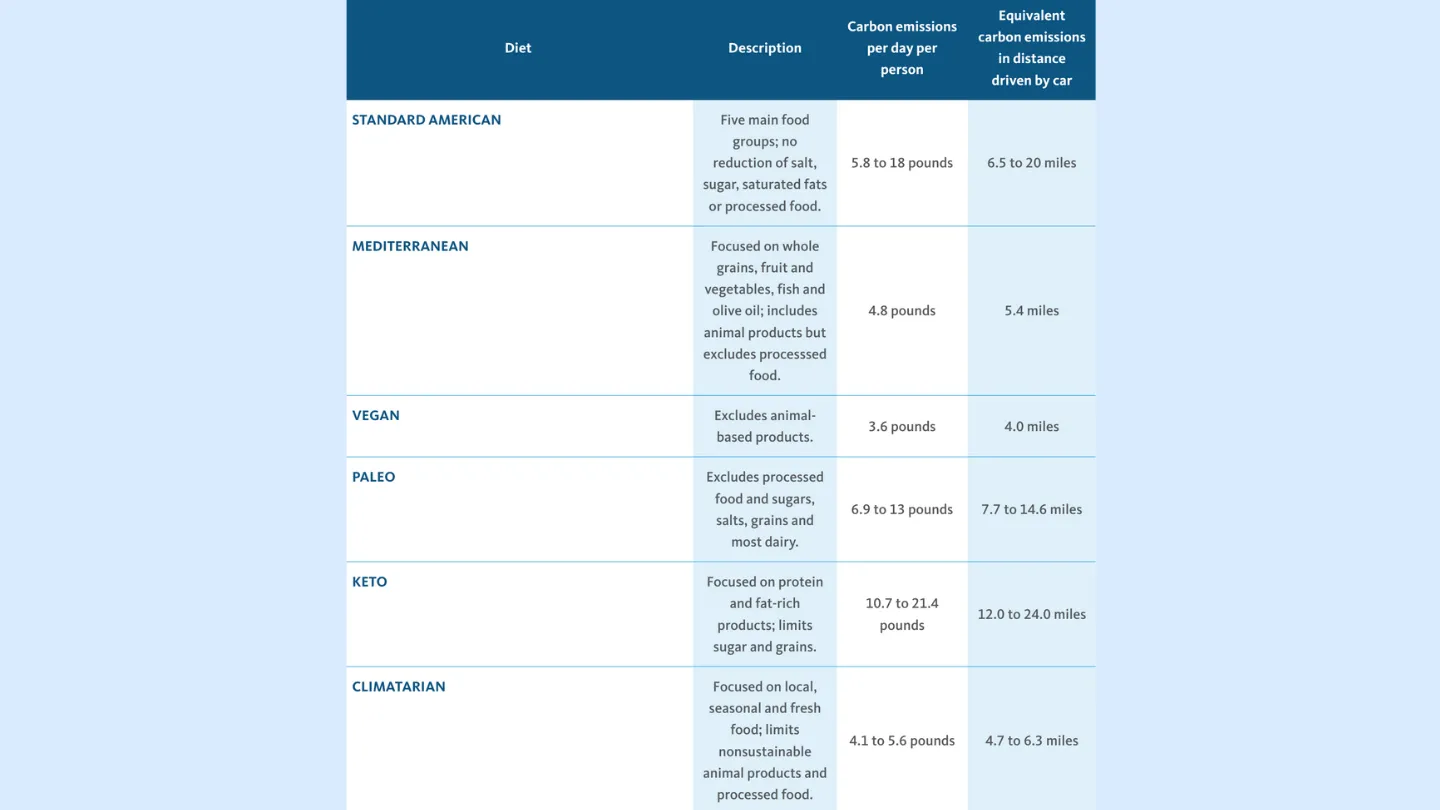Looking for a carbon-friendly diet? The answer is here
Twenty-six percent of the United States’ total greenhouse gas emissions comes from food production and consumption. What people choose to eat matters.

Twenty-six percent of the United States’ total greenhouse gas emissions comes from food production and consumption. So what people choose to eat matters — to personal health and to the global climate.
A new UCLA study published in the journal Nutrients finds that diets centered on plants and unprocessed foods benefit the health of both people and the planet.
The study analyzed six diets: standard American, Mediterranean, vegan, paleo and keto, as well as “climatarian” — a diet that minimizes the consumption of red meats and other foods, such as out-of-season produce, that have large carbon footprints.
Carbon dioxide emissions associated with food come mainly from production, transportation and disposal in landfills, rather than from the food itself. The study’s authors quantified the carbon emissions associated with each of the six diets by using previously published research and a database that tracks foods by their carbon emissions. They analyzed the food consumed in a typical day following each diet, limiting the study to foods that are available in North America, and then standardized the data to 2,000 calories per day.
Their findings:

While the differences in carbon emissions created by the various diets are relatively small on a per-person per-day basis, they do add up. A climatarian diet with meat would release up to about 4,500 fewer pounds of carbon dioxide per year than a standard American diet — the equivalent of driving a car 5,060 miles.
According to some estimates, more than 80 percent of the U.S. population consumes the standard American diet. If all of those people converted to a climate-friendly diet, the carbon emissions savings would be roughly equivalent to driving 1.34 trillion fewer miles.
Not only do Mediterranean, vegan and climatarian diets support human health, according to previous research cited by the authors, but they also create smaller carbon footprints because they rely less on red meat and processed foods, said Catherine Carpenter, a UCLA adjunct professor of nutrition and the study’s senior author. Red meat has an especially large carbon footprint because raising animals for meat requires a large amount of land and water, and because livestock flatulence releases methane, a potent greenhouse gas.
And foods that are heavily processed create high carbon emissions because of how they are produced, processed and transported, said Kiera Dixon, the study’s lead author and a master’s student in environmental health sciences at the UCLA Fielding School of Public Health.
“You can decrease your individual carbon footprint quite significantly and still consume meat, but it is highly dependent on the type of meat that you're consuming,” said Malia Michelson, a third-year undergraduate student at UCLA and co-author of the paper.
While people can reduce their climate footprint through the diets they choose, Michelson said, those choices are often limited by financial considerations — climate-friendly food is usually more expensive — and by the availability of certain foods in certain neighborhoods and regions of the country. Michelson said governments could help address the problem by subsidizing healthy food, corporations and other organizations that serve large numbers of constituents could make healthier food more accessible and less expensive, and producers could increase improve labeling to better inform consumers about their food’s climate impact.
The study was conducted in partnership with Airly, a snack food company that was seeking to compare the carbon footprints of various diets. The company played no role in the research or the writing of the paper.